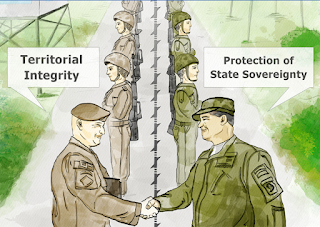[Peace Quotes] Chairman Man Hee Lee of HWPL
juliet
September 16, 2018
0 Comments
[Peace Quotes] Chairman Man Hee Lee of HWPL
Man has being doing peace work. Then, is there peace? Please keep peace and lead it to result. Peace families should tell their neighbors about peace and let them do peace work together. Should we just be a bystander? We can't. We have to take action.
President can not refuse peace. No one refuses peace. This is the reason why peace will com true. And this is the reason I'm asking you to work together for peace. I hope that we all unite together under peace and achieve eternal and peaceful world.
Both the president and an individual is the same person. If there is no people, there is no nation. If there is no nation, there is no president. The president loves the country and the people. Also, they are doing their best to make politics for the development of the country. Those people wouldn't like war. They would think the war should be ceased. They would want world peace for the people. In order for it to be achieved, DPCW, Artilcle 10 Clause38 should be practiced. So, the war can be ended and the peace can be achieved.
When I start doing this work, I transcend the border, the nation, and the religion. The reason I am doing this work is I believe the word we become one.
When the United Nations was founded, it was created for peace. And, for the sake of this peace, we have a Security Council and five board members. These are the countries that make such a device that war does not take place. However, these countries has the enormous nuclei when they preclude some other countries from making a nuclear weapon. Did the UN prevent the war from happening? no
If war does not happen, is peace achieved? So, what will we hand over to our future generations? Day by day, there are more weapons to kill people. Will you pas them on to future generations? Should we not leave war, and leave peace to our future generations? Who should do it? We have to do it today. If we love children and love our country, we must do it. Is there a better place in that outer space than this earth? There is not. In this wide and unobstructed universe space, there is no place more beautiful and life-like than earth. Is not this the Creator God gave to mankind as an inheritance? Should we destroy it? I have to love.
You do not live 200 years when you have taken other country. why should we do it? We've taught to love others. But, what is love?
Is it love to seize others?
Is that the lesson of that country? We can not. So, religious people have to reflect and all nations also have to reflect. We must fight the war, do not ruin the planet. We must also consider the descendants of other nations. We must achieve the world of peace in the future.
Two days later, there will be 4th Anniversary of the WARP Summit. The summit will be held in 17 countries including Korea, USA, Germany, UK, France, Australia, Japan, Philippines and Africa. The HWPL is carrying out a peace movement with international law enactment, inter-religious harmony and peace education as major projects to realize world peace.
Would like to join?
The world started to realize and believe HWPL's peace work and the necessity of DPCW.
#2018_HWPL_World_Peace Summit
#4th_Anniversary_of_the_WARP_Summit
#918_WARP_Summit
#DPCW_unification
#peace_festival
#DPCW
#HWPL
#Peace
#IWPG
#IPYG






























